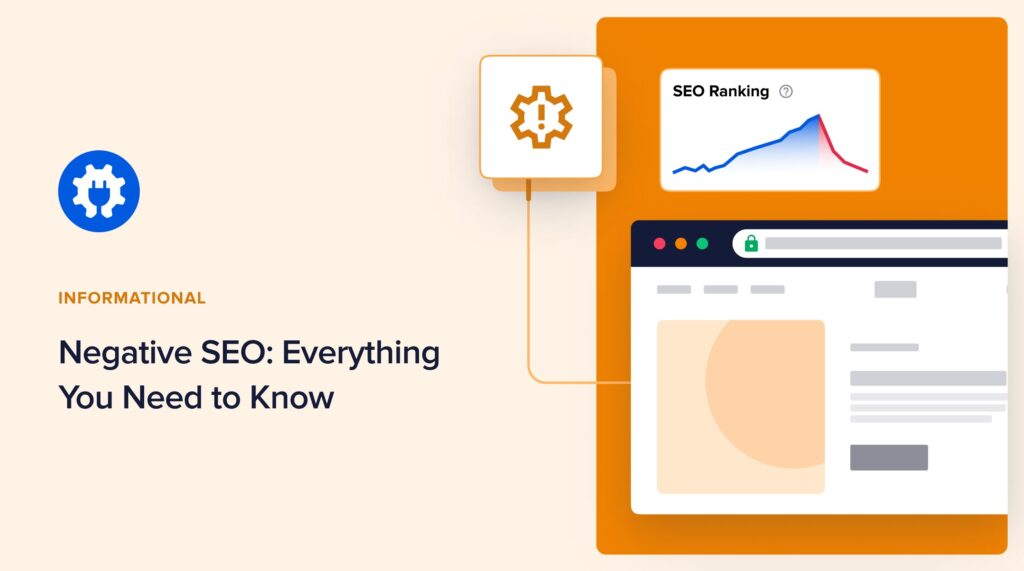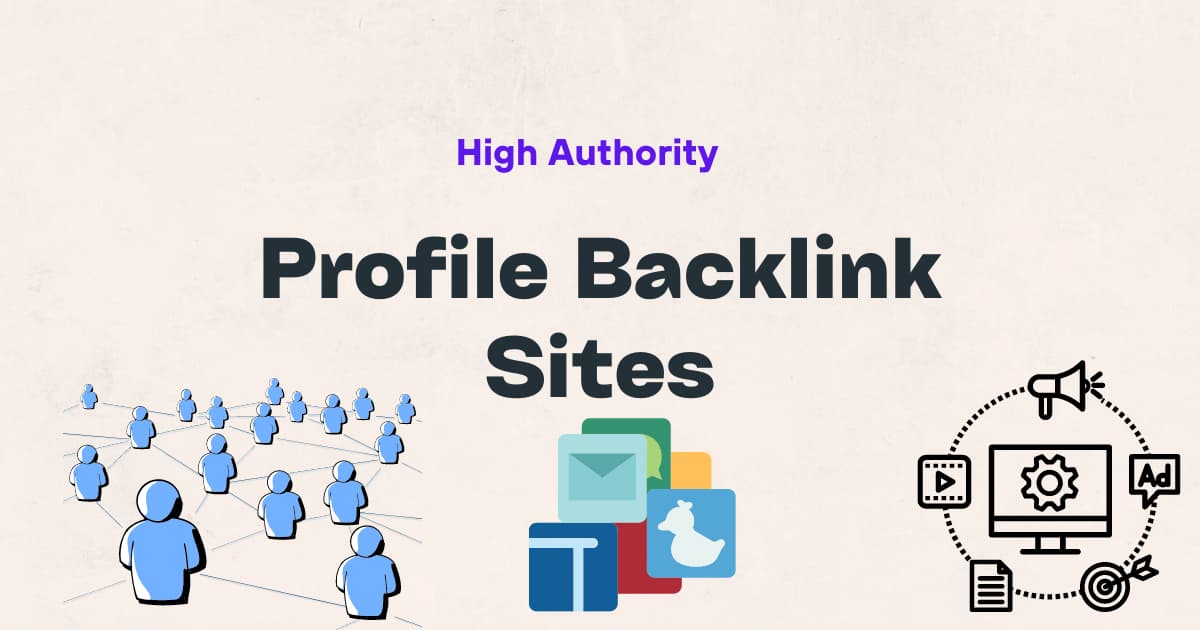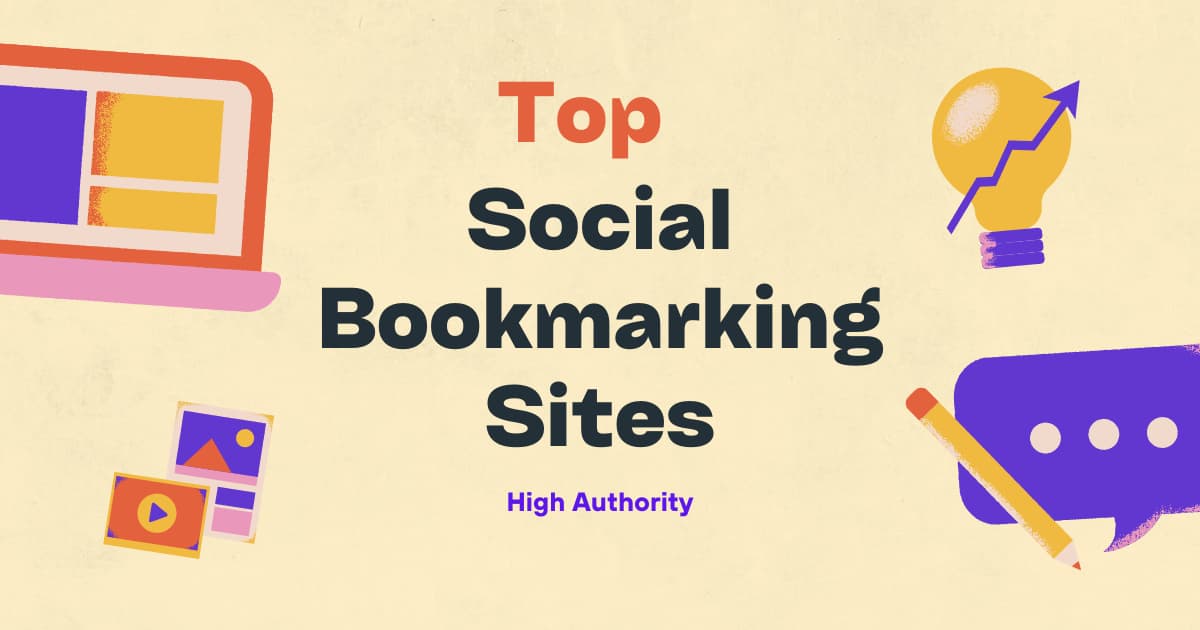Negative SEO involves unethical tactics used to sabotage a competitor’s search engine ranking. In the digital landscape, Negative SEO has become a concerning issue for website owners and SEO professionals alike.
This practice involves the use of underhanded tactics such as spammy backlinks, content scraping, and fake reviews to harm a competitor’s search engine rankings. As search engines evolve to combat such tactics, understanding and protecting against Negative SEO has become crucial for maintaining online reputation and visibility.
In this guide, we will delve into everything you need to know about Negative SEO, including how to identify, prevent, and recover from such attacks. Let’s explore the ins and outs of this detrimental practice and equip ourselves with the knowledge to safeguard against it.
What Is Negative Seo?
Negative SEO is the deliberate attempt to lower a website’s ranking in search engine results. This unethical practice involves tactics such as building spammy links, content duplication, and hacking. Negative SEO can severely damage a website’s reputation and organic traffic, making it crucial for website owners to stay aware and take preventive measures.
Types Of Negative Seo
Negative SEO can be executed in various ways, with the intention of harming a competitor’s website rankings or reputation. Here are some common types of negative SEO:
- Link-based attacks: This type involves manipulating a website’s link profile by creating massive amounts of unnatural, low-quality links pointing to the target website. These links are often obtained from spammy websites or through link farms.
- Content-based attacks: Negative SEO practitioners may target a website’s content by duplicating it across multiple domains or by publishing scraped content on spammy websites with the intention of generating duplicate content penalties from search engines.
- Website speed attacks: Targeting a competitor’s website performance, negative SEO perpetrators may overload the website with fake traffic or launch Distributed Denial of Service (DDoS) attacks, causing the site to slow down or crash.
- Malware and hacking attacks: This type of negative SEO involves compromising a competitor’s website through hacking, injecting malware, or adding malicious code. Such attacks not only harm the targeted website but also raise security concerns.
- Review and social attacks: Negative SEO can extend to review sites and social media platforms, where competitors may post false reviews, engage in negative social media campaigns, or manipulate customer sentiments to tarnish a brand’s reputation.
Motives Behind Negative Seo
Negative SEO is typically driven by a few underlying motives:
- Competition: Intense rivalry in certain industries may push unethical individuals to resort to negative SEO tactics in an attempt to gain a competitive advantage or undermine their competitors’ online visibility.
- Revenge: Personal grudges or disputes between individuals or businesses may lead to negative SEO attacks as a means of retaliation. This can be especially damaging if the targeted website heavily relies on organic search traffic.
- Financial gain: Some unscrupulous individuals may engage in negative SEO with the aim of extorting money from website owners. They may threaten to sabotage a website’s SEO rankings unless a ransom is paid.
- Black hat practitioners: Certain individuals or groups involved in black hat SEO activities may utilize negative SEO techniques not only to target competitors but also to test the effectiveness of their own strategies.

Credit: www.searchlogistics.com
Signs Of Negative Seo
It’s essential to be aware of the signs of Negative SEO, as they can harm your website’s rankings and online reputation. Take note of the following indicators:
Sudden Drop In Rankings
A drastic and unexpected decline in your website’s search engine rankings could indicate negative SEO activity.
Increase In Spammy Backlinks
If you notice a surge in low-quality or irrelevant backlinks, it may be a sign of negative SEO attacks aiming to undermine your site’s credibility.
Unnatural Keyword Stuffing
Overuse of keywords in a way that sounds unnatural can result from negative SEO efforts to trigger search engine penalties against your website.
Duplicate Content
Identical or highly similar content across multiple web pages can be a red flag for negative SEO attempts to dilute your site’s originality and authority.
Impact Of Negative Seo
Negative SEO can have a significant impact on a website’s performance and visibility. It can lead to various detrimental outcomes, affecting organic search visibility, online reputation, website traffic, and conversions. Understanding the potential consequences of negative SEO is crucial for businesses to mitigate its effects and protect their online presence.
Loss Of Organic Search Visibility
Negative SEO tactics such as spammy backlinks and keyword stuffing can result in a drastic decline in a website’s ranking on search engine results pages. This can lead to a reduction in organic traffic and diminished visibility among potential customers and audience.
Damage To Online Reputation
Manipulation of online reviews and content scraping are common negative SEO techniques that can tarnish a business’s reputation. Inaccurate or malicious information spread across the internet can undermine the trust and credibility of a website, affecting brand perception and user engagement.
Loss Of Website Traffic
Underhanded tactics such as Distributed Denial of Service (DDoS) attacks or negative sentiment targeting can lead to a substantial drop in website traffic. With a decrease in organic visitors, the potential for sales and customer acquisition is severely impacted.
Reduction In Conversions
Negative SEO can have a detrimental effect on a website’s conversion rate. When legitimate traffic is diverted away or the site becomes untrustworthy due to negative SEO tactics, the likelihood of conversions diminishes, affecting business revenue and growth.

Credit: sproutsocial.com
Protecting Your Online Reputation
Protecting your online reputation is crucial for maintaining a positive image and trustworthiness in the digital world. With the prevalence of negative SEO tactics, it’s essential to take proactive measures to safeguard your website from malicious attacks and maintain a strong online presence.
Regularly Monitor Website Performance
Regularly monitoring your website’s performance is vital in detecting any unusual changes or irregularities that may indicate negative SEO attacks. Keep a close eye on your website’s traffic, ranking, and engagement metrics to identify any sudden drops or anomalies that could be a result of malicious activity.
Use Google Webmaster Tools
leveraging the power of Google Webmaster Tools is imperative. It provides valuable insights into your website’s health, indexing status, and any potential security issues. By staying informed through these tools, you can promptly address any anomalies or suspicious activity that may threaten your online reputation.
Secure And Backup Your Website
Securing and regularly backing up your website is essential for protecting against negative SEO attacks, data breaches, and potential website defacement. Implement robust security measures, utilize HTTPS protocol, and maintain regular backups to safeguard your site’s integrity and reputation in the face of potential threats.
Build A Strong Backlink Profile
Building a strong and reputable backlink profile is vital for fortifying your website against negative SEO tactics. Focus on acquiring high-quality, relevant backlinks from authoritative sources to bolster your site’s credibility and resilience against negative SEO attacks.
Address Negative Seo Attacks Promptly
In the event of negative SEO attacks, prompt action is paramount. Swiftly identifying and addressing any malicious activities, such as toxic backlinks, content scraping, or user-generated spam, is crucial for mitigating the impact on your online reputation and restoring your website’s authority.
“` If you need any modification, feel free to ask.
Tools For Identifying Negative Seo
Backlink Monitoring Tools
Backlink monitoring tools help detect suspicious or low-quality backlinks pointing to your website.
Website Security Plugins
Website security plugins enhance your site’s protection against negative SEO attacks.
Duplicate Content Checkers
Duplicate content checkers identify any copied content that could harm your site’s rankings.
Google Analytics
Google Analytics provides valuable insights into your website traffic, helping spot unusual patterns.
Steps To Recover From Negative Seo
Recovering from negative SEO is a crucial step to protect your website’s online presence and reputation. By taking immediate action, you can counter the negative effects and regain your search engine rankings. Here are the essential steps to recover from negative SEO:
Identify And Disavow Spammy Backlinks
To start your recovery process, it is important to identify and disavow any spammy backlinks that might be affecting your website’s performance. These backlinks may come from low-quality or irrelevant websites that aim to manipulate search engine rankings. By using tools such as Google Search Console and third-party backlink analysis tools, you can identify these toxic backlinks and create a disavow file.
Here’s how to identify and disavow spammy backlinks:
- Use Google Search Console or other backlink analysis tools to analyze your backlink profile.
- Look for any suspicious, low-quality, or irrelevant websites that are linking to your site.
- Create a disavow file in the required format (TXT) and specify the links you want to disavow.
- Submit the disavow file to Google through Google Search Console.
Request Removal Of Duplicate Content
Duplicate content can harm your website’s visibility in search engine results. Negative SEO attacks often involve creating duplicate content on other websites to undermine your rankings. Therefore, it is vital to request the removal of such duplicate content to protect your website’s reputation.
Follow these steps to request the removal of duplicate content:
- Identify the URLs of the duplicate content using plagiarism detection tools or manual checks.
- Reach out to the website owners hosting the duplicate content and request immediate removal.
- If your request is ignored or denied, report the duplicate content to the search engines through their respective webmaster tools.
Improve Website Security Measures
Enhancing your website’s security measures is crucial for preventing negative SEO attacks in the future. Hackers and malicious actors often exploit vulnerabilities to inject spammy links or malware into your website. Strengthening your website’s security can provide an additional layer of protection against such attacks.
Consider these website security measures:
- Regularly update your content management system (CMS) and plugins to their latest versions.
- Implement an SSL certificate to secure data transmission between your website and users.
- Use strong and unique passwords for all website accounts and consider enabling two-factor authentication.
- Monitor your website for any suspicious activities or unauthorized changes.
Rebuild A Strong Backlink Profile
Rebuilding a strong backlink profile is essential to recover from negative SEO. Focus on acquiring high-quality backlinks from authoritative and relevant websites to regain your organic search rankings. Building a diversified and natural backlink profile will help search engines recognize the credibility and relevance of your website.
Follow these strategies to rebuild a strong backlink profile:
- Conduct thorough research to identify authoritative websites in your niche.
- Reach out to these websites with compelling content or resources that align with their audience’s interests.
- Participate in guest blogging opportunities to showcase your expertise and earn backlinks.
- Create valuable and shareable content that naturally attracts backlinks from other websites.
Legal Actions Against Negative Seo
When it comes to negative SEO, one of the biggest concerns for website owners is the legality of such practices. In this section, we will explore the legal aspects of negative SEO and the options available for those who have been targeted.
Is Negative Seo Illegal?
Negative SEO refers to the use of unethical tactics to harm a competitor’s website’s search engine rankings. While it may seem like a clear case of sabotage, the legal status of negative SEO is not as straightforward as one might think.
Currently, there aren’t any specific laws that directly address negative SEO. However, this does not mean that it is completely legal. Negative SEO can still be considered illegal under various existing laws, such as defamation, hacking, copyright infringement, and fraud.
Website owners who engage in negative SEO practices can potentially face legal consequences if their actions violate any of these laws. It is crucial for both victims and perpetrators of negative SEO to understand the potential legal implications.
Legal Options Available
For website owners who have fallen victim to negative SEO, there are legal options available to seek justice and reclaim their online reputation. Here are a few courses of action you can consider:
- Evidence gathering: Collect as much evidence as possible to support your claim, including screenshots, server logs, and other relevant information.
- Contact the perpetrator: Reach out to the individuals responsible for the negative SEO attacks before taking legal action. It’s possible that they may be willing to remove the harmful tactics.
- File a complaint: If communication does not yield any positive results, you can file a complaint with search engines, hosting providers, or relevant regulatory authorities.
- Consulting with an attorney: In serious cases of negative SEO, it is advisable to seek legal advice from an attorney who specializes in internet law. They can guide you through the legal process, assess the strength of your case, and determine the appropriate legal actions to take.
By consulting with an attorney, you can ensure that you are taking the necessary steps to protect your online presence and hold the perpetrators accountable for their actions.

Credit: aioseo.com
Frequently Asked Questions For Negative Seo: Everything You Need To Know
How Do You Do Negative Seo?
To do negative SEO, unethical techniques like creating spammy backlinks or duplicate content are used to harm a competitor’s search engine rankings.
What Is The Negative Of Seo?
The negative aspect of SEO is that it takes time and effort to see results. Additionally, it can be challenging to keep up with the constant changes in search engine algorithms. However, with proper strategy and implementation, SEO can greatly benefit a website’s visibility and organic traffic.
Is Negative Seo Illegal?
No, negative SEO is not illegal. However, it goes against search engine guidelines and is considered unethical.
What Are Negative Seo Keywords?
Negative SEO keywords are terms you want to avoid in your SEO strategy. They are words that can attract the wrong audience or have negative connotations. Incorporating them into your content can harm your search rankings. Conduct thorough keyword research to identify and exclude them from your content.
Conclusion
In light of the risks posed by negative SEO tactics, vigilance is key for safeguarding your online presence. By staying informed, implementing strong security measures, and regularly monitoring your website, you can protect against malicious attacks. Remember, prevention is always better than dealing with the aftermath.
Stay proactive!




